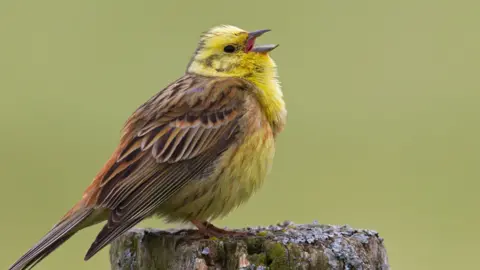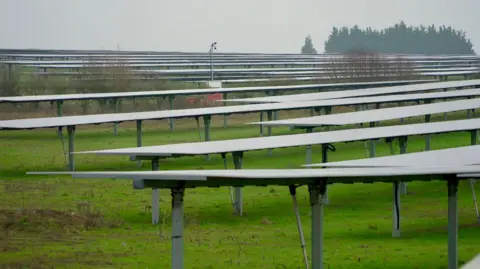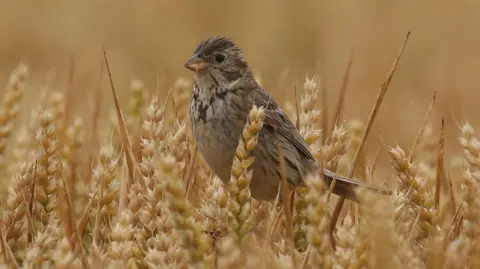Well-managed solar farms can boost wildlife - study
 Getty Images
Getty ImagesA new study has found well-managed solar farms can make an important contribution to nature as well as "provide relief from the effects of agricultural intensification".
The report, from the RSPB and the University of Cambridge, was published on Wednesday in the journal Bird Study and looked at two types of solar farms in the East Anglian Fens.
Scientists found that solar farms had a greater number of species and individual birds per hectare than the surrounding arable land.
It added that farms which had been managed with a mix of habitats, had not cut back grass and maintained hedgerows, had nearly three times the number of birds present compared with arable land nearby.
Dr Catherine Waite, researcher at the University of Cambridge and co-author of the study, said: "With the combined climate and biodiversity crises, using land efficiently is crucial.
"Our study shows that if you manage solar energy production in a certain way, not only are you providing clean energy but benefiting biodiversity."
 Martin Giles/BBC
Martin Giles/BBCThe findings showed well-managed solar farms in arable-dominated areas could provide biodiversity benefits as part of mixed-use landscapes.
The study also found new solar farms should not be located in areas of ecological risk, nature-protected sites and other sites that are important for rare or declining species.
It suggested solar farms did not pose a threat to national food security, especially when built on low or moderate grade agricultural land.
 Getty Images
Getty ImagesThe RSPB called for a "strategic and spatial approach to planning for renewable energy" to ensure solar farms were built in low areas of risk for nature, adding that the current land use framework consultation is an "important step forward".
It said farmland species such as corn bunting, linnet and yellowhammer have seen their populations dwindle and finding ways to help them is critical for their long-term survival.
Dr Joshua Copping, conservation scientist at the RSPB and lead author of the study, said: "The results of this study suggest that solar farms managed well for nature could make an important contribution and could provide relief from the effects of agricultural intensification."
Follow Cambridgeshire news on BBC Sounds, Facebook, Instagram and X.
